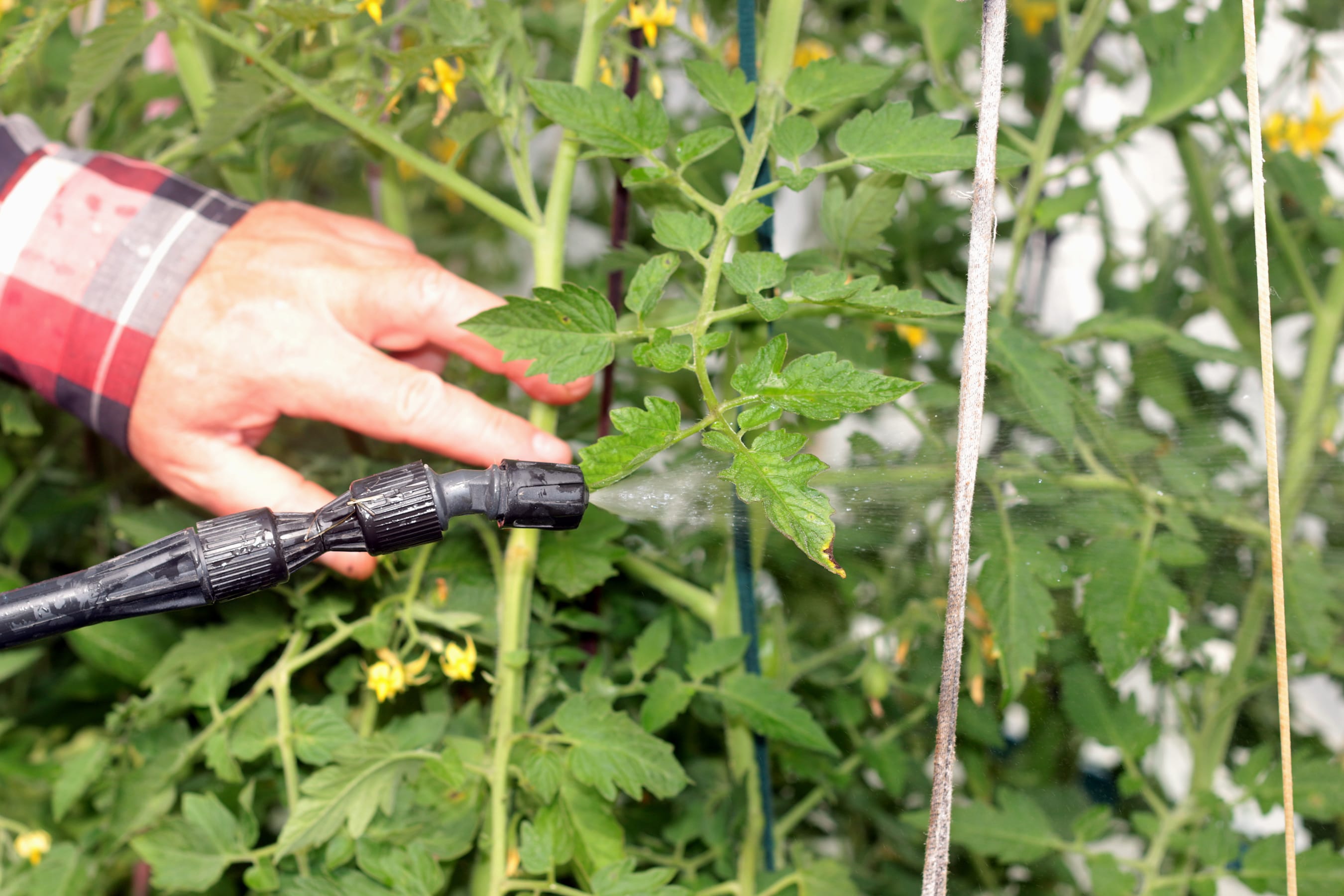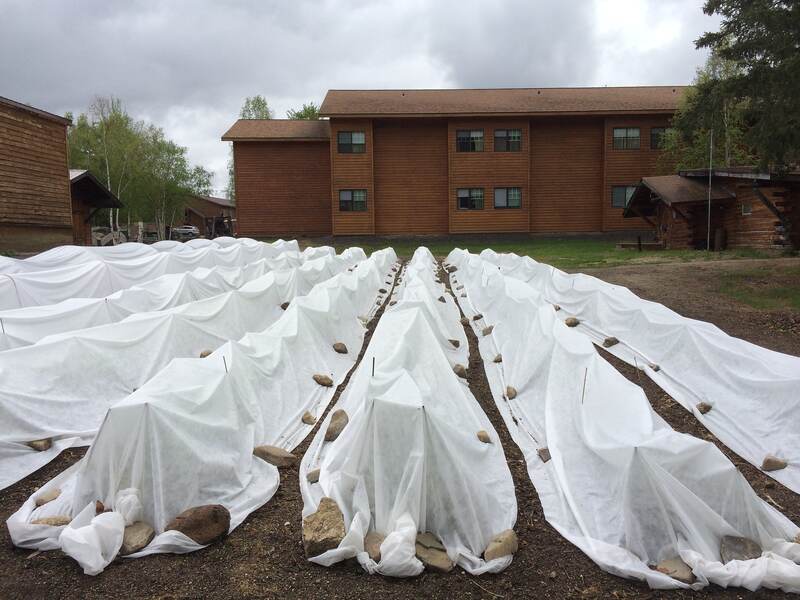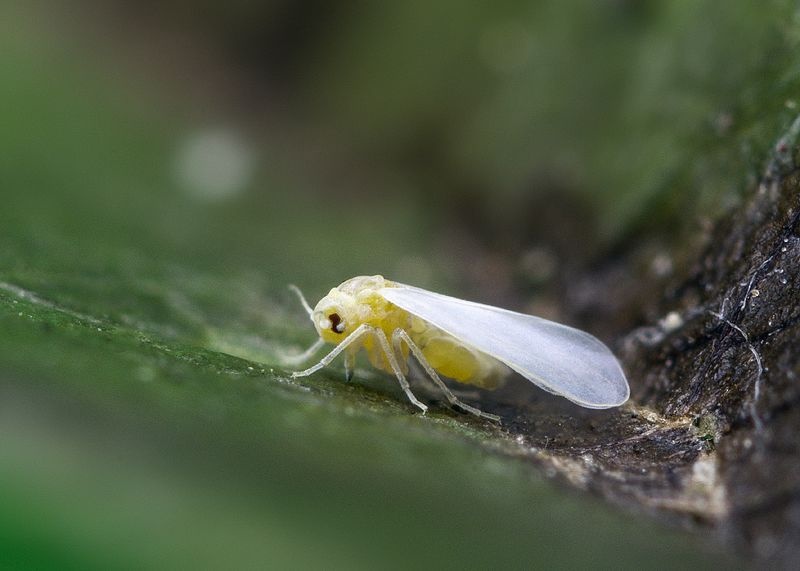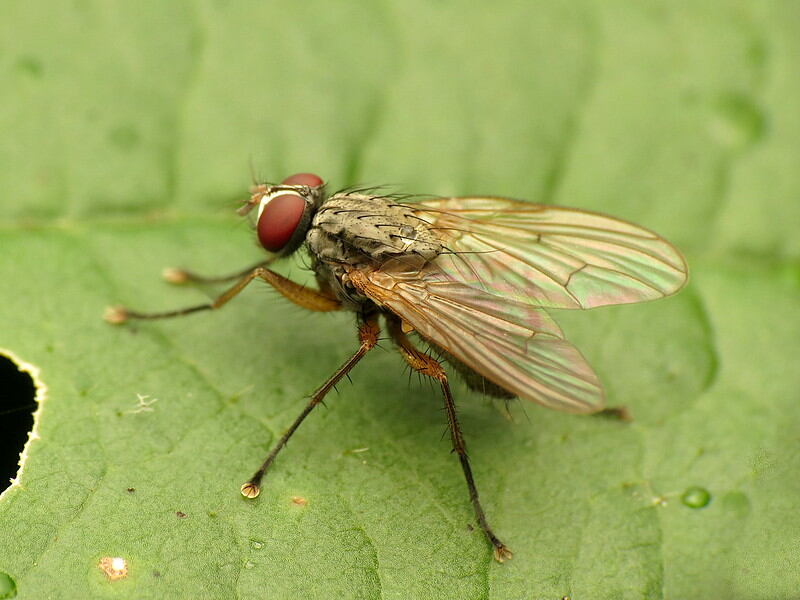
With growing concern about traditional pest control methods, many gardeners and homeowners want to use safer, more eco-friendly methods to keep bugs under control. But do organic pest control methods really work? Yes, in many cases, organic pest control methods can be even more effective in your garden than traditional pesticides.
In fact, professional pest control companies use organic methods, such as extreme heat or cold, to control tough insects like bed bugs. Here are five very effective methods of organic pest control that you can use in your flower and vegetable gardens:
1. Floating Row Covers

Floating row covers provide excellent bug control for a vegetable garden. They can be used to control various species of insects, including:
- Aphids
- Tomato hornworms
- Cabbage moths and cabbage worms
- Potato beetles
- Squash bugs
- Cucumber beetles
- Other mobile pests
Even better, they provide some protection from deer, birds, rabbits, and squirrels, as well as wind and sun.
When to use them: Floating row covers can protect your plants temporarily when pests are most active and can do the most damage. If your plants don’t require insect pollination, floating row covers can be used for the entire lifespan of the crop. For best results, install the row covers when you put your plants in the ground and leave them in your garden as long as possible.
What kind of cover to buy: This translucent polyester fabric comes in rolls 4 to 8 feet wide and can be purchased by the roll or the yard. Get the lightweight version for summer use. It will act as a repellent without overheating the plants.
The heavyweight version is great to use as a season extender in early spring and late fall because it will help warm the soil and provide some protection from light frosts. The material is porous to let in water, and it will let up to 80% of natural light into your garden, too.
How to install floating row covers: Simply drape the material over your crops, or drape it over hoops or wires to protect tender or tall plants. It even can be wrapped around tomato cages to protect your crop from tomato hornworms or critters in search of a snack.
But be aware that the edges must be secured to keep pests from reaching your plants. Use boards, rocks, or landscaping staples to hold down the fabric.
2. Insecticidal Soap

Insecticidal soap can be a crop saver when your garden has a sudden infestation of soft-bodied insects, including:
- Aphids
- Whiteflies
- Spider mites
Insecticidal soap works by using fatty acids to break down the insect’s protective cuticles so that it becomes dehydrated and dies.
Where to find insecticidal soap: Most home improvement stores and garden centers carry the product in various brands. They’re usually sold as a concentrate that you must dilute in a spray bottle. Once the insecticidal soap is diluted, it will be effective only for a few days, so you should mix just one application of soapy water at a time.
How to use: When applying insecticidal soap, completely wet the leaves on both sides. The soap can cause leaf burn, so be sure to test carefully before applying it to an entire crop.
The soap must come in direct contact with the insect to do its job, so there is no residual effect with this method. You’ll need to treat your plants every five to seven days, as more insects hatch.
3. Neem Oil Spray
Neem oil, which is found in the seeds of the neem tree, can be used to manage many pests, including:
- Squash bugs
- Potato beetles
- Bean beetles
- Other leaf-eating beetles
Neem oil contains several natural steroids. When it is applied to plants and sprayed on pests, the insects will lose interest in laying eggs. They will also eat less and grow more slowly.
When to apply neem oil: For best results, begin applying neem oil at the first sign of adult insects. Reapply every seven to 10 days for the entire growing season. Although egg-laying will be significantly reduced, you will still need to hand-pick adult insects and eggs from plants to keep them under control and minimize damage.
Use caution: Neem oil is not selective; it will affect beneficial insects, too, but only if they eat the plant. Out of an abundance of caution, if you have pollinating plants, cover them for at least 24 hours after a neem oil application to protect bees.
If possible, avoid spraying during peak flowering times and avoid spraying the flowers. Spraying when pollinators are not as active, like early morning or late evening, is also a good idea.
How to use neem oil: Before applying neem oil spray, shake the product well. When combining neem oil concentrate, use lukewarm water to get a better mix. Be sure to completely wet both sides of the leaves of affected plants. Don’t spray on very hot days, and don’t spray on plants that are stressed from lack of water.
To avoid burning your plants, test neem oil on a few leaves and wait 48 hours before applying it to the entire plant.
Pro Tip: Neem oil is also a fungicide, controlling fungi such as powdery mildew and rust.
4. Beneficial Nematodes

Beneficial nematodes, also known as parasitic nematodes, are microscopic roundworms that work by releasing a bacteria that kills the host insect in as little as one or two days. These nematodes exist in most soils in small numbers, but there usually aren’t enough of them to control large pest populations.
Beneficial nematodes are very effective in controlling soil-dwelling pests, such as:
- Root maggots
- Cutworms
- Caterpillars
- Japanese beetle larvae
- Other grubs
How to prepare parasitic nematodes: The nematodes are purchased by the billions and shipped while they are dormant. Store them in your refrigerator until you need them, then mix with warm water when you’re ready to apply them to your garden.
Beneficial nematodes lose their effectiveness over time, so use them as soon as possible. Also, don’t try to save any of the leftover mix. The nematodes are only viable for a short time.
When to apply parasitic nematodes: Don’t apply nematodes to the soil until the ground temperature reaches about 60 degrees. Apply them in the evening, or when it’s overcast. Be sure to water them thoroughly. The recommended rate of application for 1,000 square feet is approximately 23 million nematodes.
5. Hand-Pick Those Bugs
Sometimes, the easiest and least expensive means of organic pest control is to, well, just pull the insects off your plants. Some gardeners say that they’ve had enough success in hand-picking bugs that it’s become their primary means of garden pest control.
Some of the bugs that are easily managed with hand-picking are:
- Slugs: Gardeners report a high rate of success with slug picking. And if you raise ducks, know that they’ll be happy to eat those you pick.
- Squash bugs: For an easy pick, place a flat box under the plant, then give the plant a good shake to knock off the bugs.
- Tomato hornworms: These are the easiest bugs to pick, as they’re large and easy to spot.
- Japanese beetles: These are said to be a favorite snack of poultry. If you want to allow your chickens, ducks, or guinea fowl into your garden, they may do the job for you.
6. Diatomaceous earth (DE)
Also known as DE, diatomaceous earth is a white powder made of fossilized single-cell algae called diatoms. Less popular to the average home gardener and lawn owner, it has been used for decades as an organic pesticide to kill harmful insects such as:
- Mole crickets
- Fire ants
- Japanese beetles
- Fleas
- Spider mites
- Bed bugs
- Silverfish
- Snails
- Earwigs
- Aphids
- Ticks
- Grasshoppers
- Cockroaches
- Squash bugs
- Fungus gnats and more
DE is high in silica, which makes it highly abrasive and absorbent. When insects get DE on their bodies, silica sucks out oils and fats in their waxy exoskeletons. It also scratches the protective shield, exposing the pests to the environment. Insects die from losing bodily fluids to the dry air and heat.
When to apply: DE is only active when dry and can be easily disturbed by wind. To get the best results, apply it on a dry day, with no rain in the forecast for the next 24 to 48 hours. Make sure it’s a day with no wind.
How to use: Always wear protective gloves, goggles, and a breathing mask to apply DE correctly and safely. The powder is not toxic but abrasive and can irritate your eyes, throat, nose, and skin mucosa.
You can apply DE as a powder or liquid solution. The dry powder makes for the best option if you’re using it:
- Directly on visible pests on leaves or soil.
- On a small area, targeting each leaf and stem.
- In a circle, enclosing an infested area so insects can get out or in without getting DE on their bodies.
To ensure the powder stays on the plant surface, spread a soft water mist across the treated area before applying it.
The liquid solution is more helpful when treating large or hard-to-access areas. It’s easier to spread on tall trees, dense shrubs, or the hidden side of leaves.
No matter how you apply the insecticide, you must only use food-grade DE (not pool-grade DE). Food-grade DE is the only form safe for use in your garden, around pets, and children. You find it easily in online shops like Amazon, Home Depot, and Walmart.
FAQ
It depends on the pest control method and whether it is applied directly to the plant. For instance, insecticidal soap loses its potency after it dries. However, it is a good idea to rinse off the vegetables before you eat them. If you use neem oil to control garden pests, wait five to seven days before harvesting.
A barrier, be it a glue band or a coat of barrier glue, is an easy way to protect your fruit trees from certain pests For example, winter moth caterpillars are a threat to plum and apple trees. The glue barrier acts as a roadblock, preventing the wingless female moth from climbing the tree and laying eggs. Glue can also block other fruit tree pests, like snails and slugs.
While soap can control garden pests, most modern dishwashing liquids are not soap — they’re detergent. The ingredients may not be effective against garden insects and could potentially damage the plant’s leaves. If you do try dish soap, test by spraying a water/detergent mix on a single leaf, then wait 24 hours to check for damage.
When to Call a Professional
Applying organic pest control is a DIY job that most gardeners can handle. But if you are short on time or unsure about the best method to use, a local lawn care professional can help. A pro can evaluate your situation and apply a safe and effective organic pest control method to keep bugs from taking over your lawn and garden.
Additional source: Mother Earth News
Main Image Credit: AdobeStock